The surprising food, other than sugar, that can cause cavities
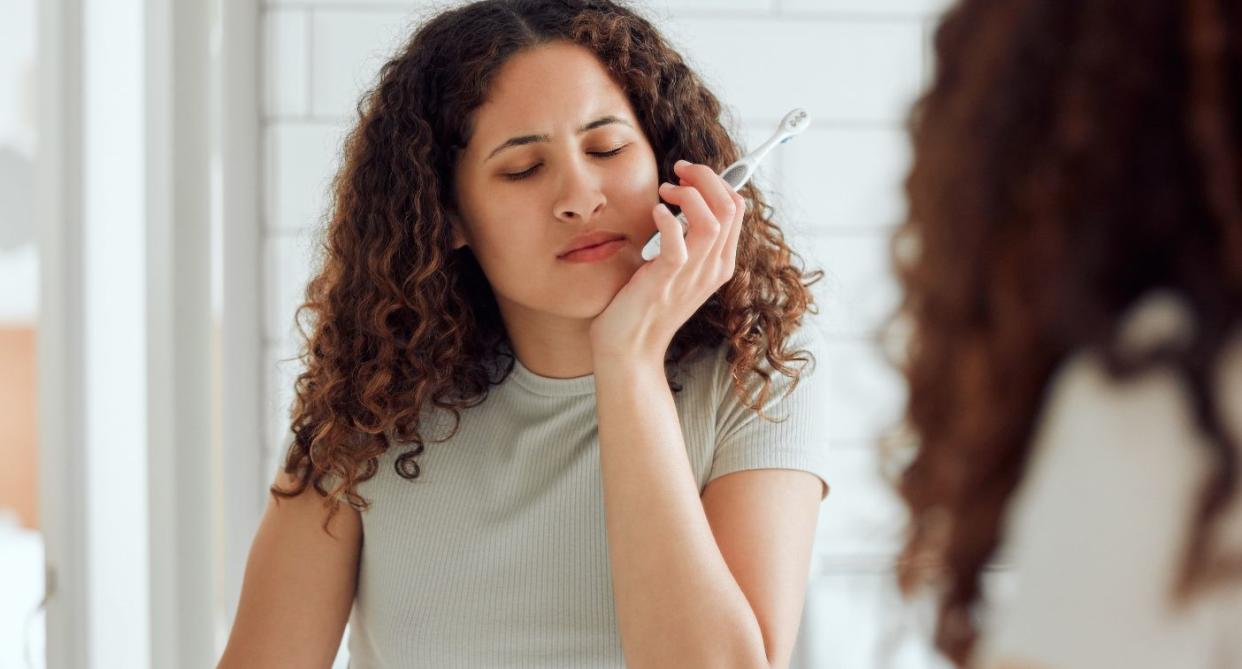
It's not just sugary sweets, chocolates and drinks that can cause cavities, but another common food type.
Nearly one in three (31%) of adults currently have obvious tooth decay (which can cause cavities), according to the Oral Health Foundation, showing just how widespread the problem is, with many potentially unaware what could be contributing to it.
So, to help prevent you from unknowingly neglecting your oral hygiene this World Oral Health Day and every day, the experts at GoSmokeFree have debunked common dental myths and misconceptions – starting with the cavity-causing food you might not know about.
1. 'Sugar is the only cause of cavities'
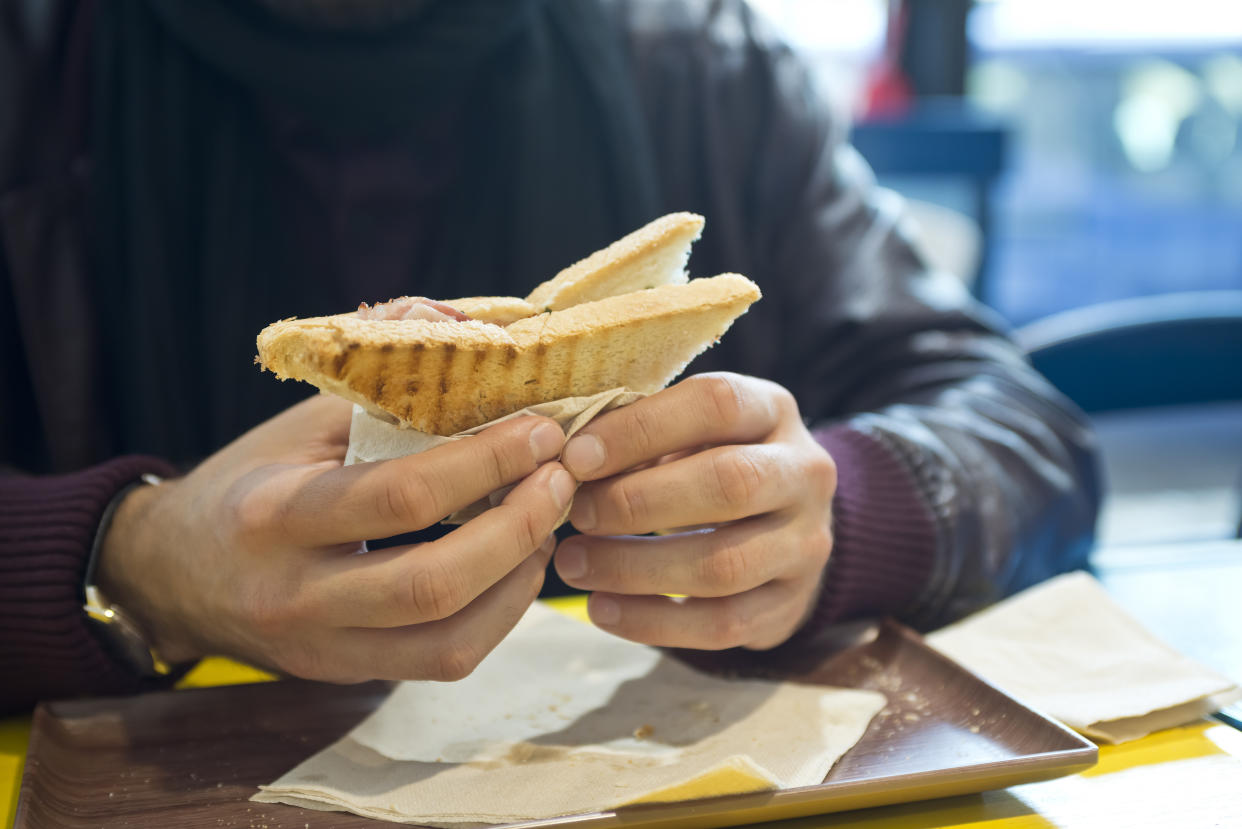
"While it is true that sugar can play a role in the development of cavities, it is a common misbelief that it is the sole reason a person has one. Cavities can be caused by a variety of factors including the amount of carbohydrates and acidic foods a person eats, poor dental hygiene, having a dry mouth, and even smoking," says Nick Singh, as spokesperson and CEO.
How do carbs cause cavities?
"The carbs are broken down by bacteria (notably, Streptococcus mutans) into sugar, which normally gives us energy but in this instance can affect the surface of the tooth. This sugar interacts with the plaque and becomes slightly acidic which causes demineralisation (where minerals such as calcium and phosphate are reduced in the enamel, thus weakening it)," he adds. So, sugar still has a part to play, but it's not just eating it directly that can cause problems.
Which type of carbs lead to damage?
"All carbs have an effect on teeth, although it is mostly sugary carbs and refined carbs (e.g white bread, white rice) that have a faster working effect, largely due to the rates in which we consume them. Currently, the NHS highlights reducing added sugar rather than specific types of carbs, with the recommendation being no more than 30g of added sugar per day for adults," he adds.
Starchy carbs (i.e. wholegrain varieties) are an essential part of a healthy diet and should make up just over a third of the food you eat, the NHS advises.
"As for acidic foods, items such as vinegar, citrus fruits and fizzy drinks work similarly to enhance tooth decay. They also promote demineralisation by wearing away at the protective layer through chemical reactions on the tooth surface, leading to broken down enamel and heightened tooth sensitivity."
2. 'Smoking only causes aesthetic damage'
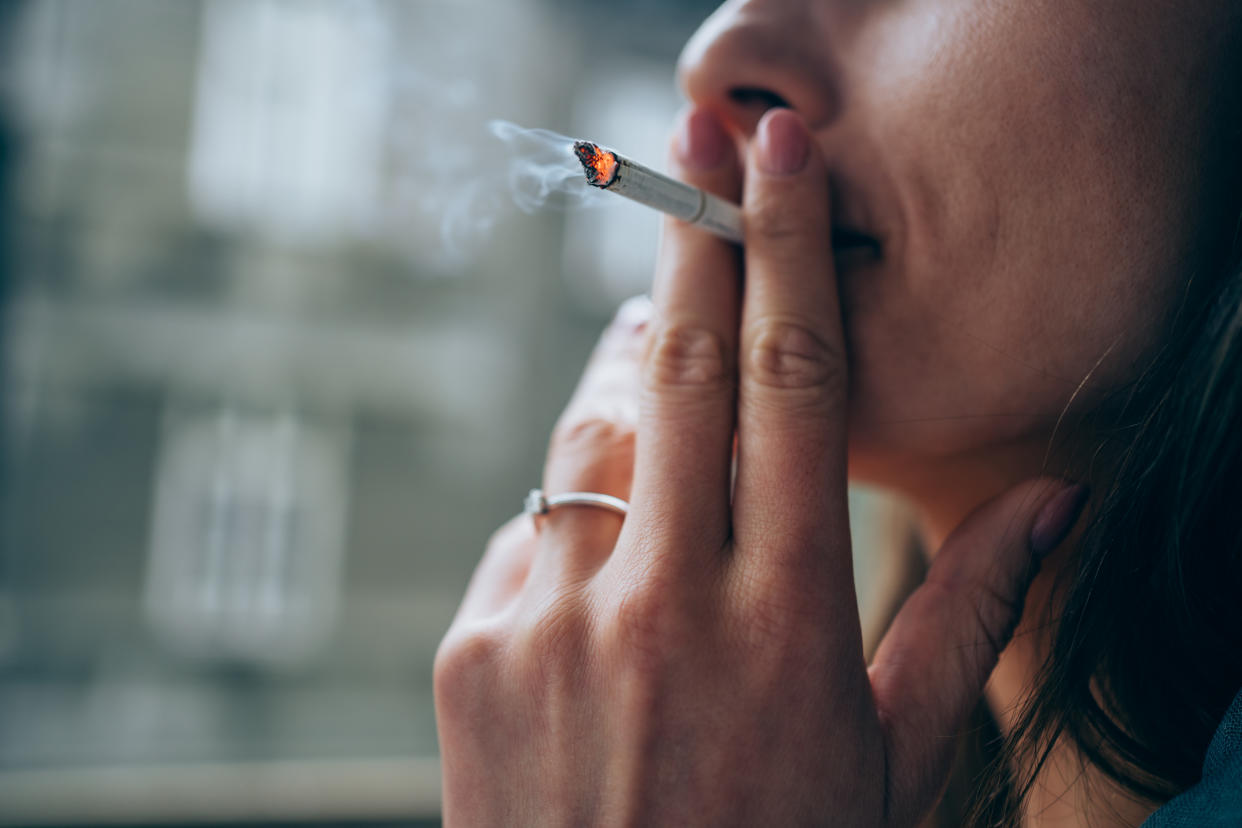
"More than aesthetics, smoking increases your chance of developing gum disease as it reduces the blood flow to the gums and due to the body’s impacted immune system, leaves them unable to heal properly and become inflamed. Furthermore, serious issues such as oral cancer are linked to smoking," the GoSmokeFree expert points out.
"Also, any further treatments you may need can have a lower chance of success. This is because nicotine is a vasoconstrictor and lowers the amount of blood flow to an area, causing your body to lack the oxygen and glucose levels necessary to heal. Overall, smoking can lead to many nasty side effects other than simply staining your teeth."
3. 'Dental problems caused by smoking can be reversed with cosmetic procedures'
"Many believe that cosmetic procedures are a viable choice to fix your teeth after damage caused by smoking. However, this is not the case as smoking causes long-term consequences that will only, at best, be temporarily solved through such procedures," he adds.
"As mentioned already, smoking can cause serious health issues and compromise your oral health. Any cosmetic procedure, such as teeth whitening, is only temporary and more serious issues can take hold. You will need to address the root cause of the issue, which can be expensive as well as often irreversible."
4. 'Brushing harder leaves teeth cleaner'

"Brushing too hard can leave teeth worse off, especially if your toothbrush has hard bristles. As with acidic foods, the enamel can get worn down from excessive brushing and leave you at an increased risk for tooth decay.
"Furthermore, doing so can also cause gum recession in the future which can lead to exposed sensitive root surfaces, meaning you will need to visit the dentist for more extensive work. If you also smoke, this causes a reduced blood flow to the gums meaning slower healing and more inflammation, so it is vital not to brush too hard."
5. 'Mouthwash can replace brushing and flossing occasionally'
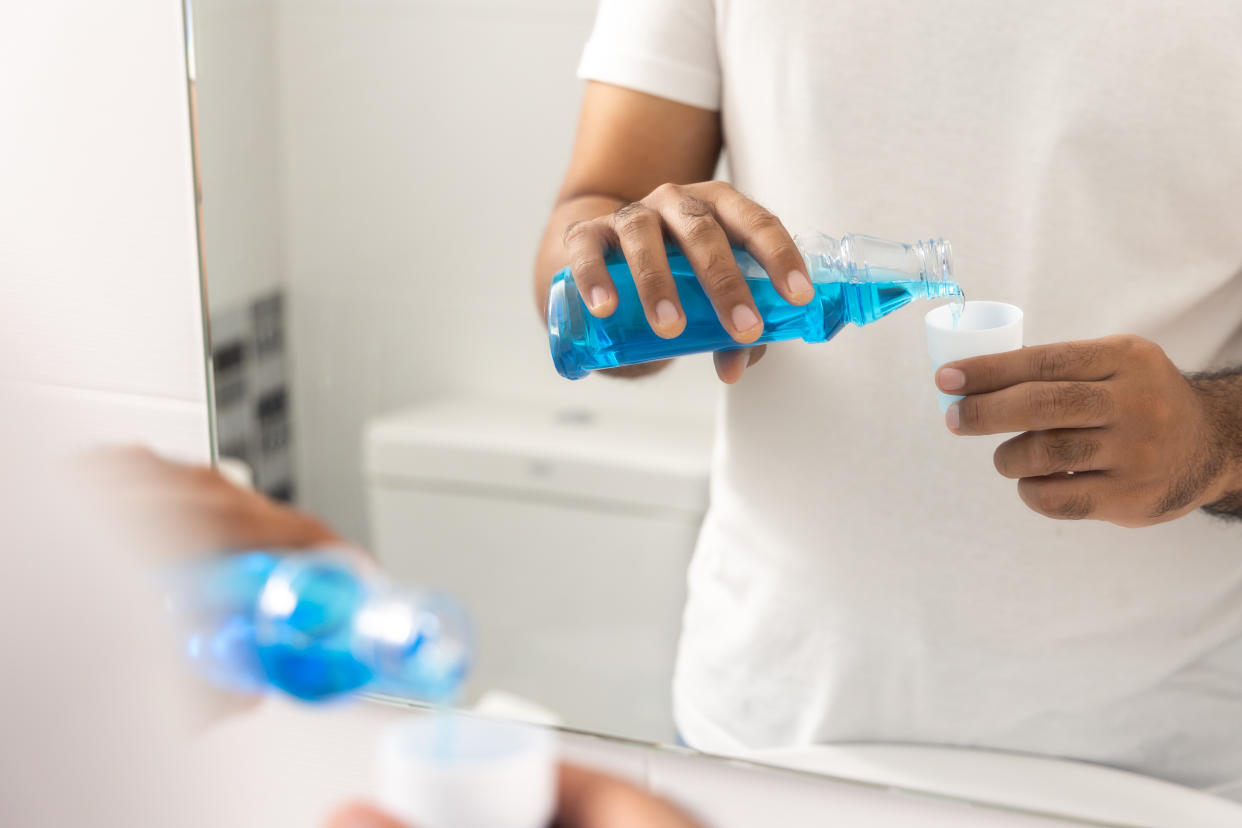
"While mouthwash is a beneficial addition to oral care, it can't substitute brushing and flossing. It often misses food particles and lacks enough fluoride, crucial for enamel strength.
"Prolonged fluoride contact, which is vital for efficacy, is unattainable through a quick rinse. Immediate post-brushing mouthwash use removes fluoride; optimal retention requires toothpaste to remain for 30 minutes. Smokers especially need this extra fluoride to limit any further issues."
6. 'No-prep veneers cause no permanent change to your teeth'
"Normally, veneers require teeth to be heavily shaved down into nubs for the veneers to be cemented into place, but more recently, there have been 'no-prep' veneers available, offering, reportedly, limited changes to a person’s pearly whites.
"No-prep veneers, designed to minimise enamel removal, offer a costly- up to £1300 per tooth- cosmetic dentistry option but still have lasting effects on your teeth as they will often need to be altered in small ways to fit the veneers. Any alteration to enamel is permanent, leading to heightened tooth sensitivity and altered tooth structure, which can already be an issue for smokers."
7. 'Baby teeth don't require much care'
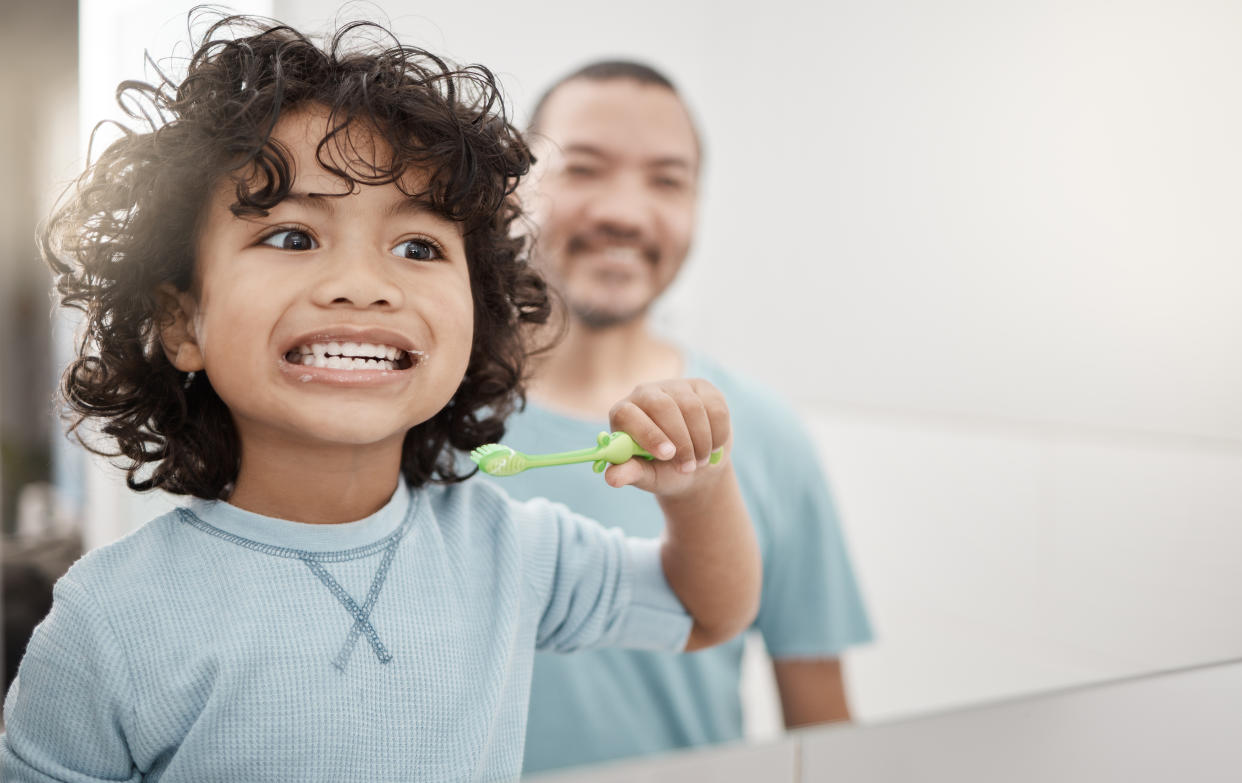
"Some may underestimate the importance of caring for baby teeth, knowing they will eventually fall out. However, neglecting them can have significant consequences as baby teeth serve as placeholders for permanent teeth and play a crucial role in speech development and chewing.
"Poor oral hygiene in early childhood can lead to early childhood cavities, causing pain and potential damage to permanent teeth beneath the surface too. Establishing good oral care habits from a young age, including regular brushing, limited sugary snacks, and regular dental check-ups, is essential for maintaining the health of baby teeth and setting the foundation for lifelong dental wellbeing."
It is important to see a dentist immediately if you believe you have a cavity or any other issue so it can be treated as soon as possible.
Read more: How often should you be seeing a dentist? (Yahoo Life UK, 5-min read)
Read more: The remarkable ways mental health impacts your teeth (Yahoo Life UK, 5-min read)
Read more: Why neglecting your teeth could seriously damage your health (Yahoo Life UK, 5-min read)
Watch: How to keep your teeth healthy for a lifetime


